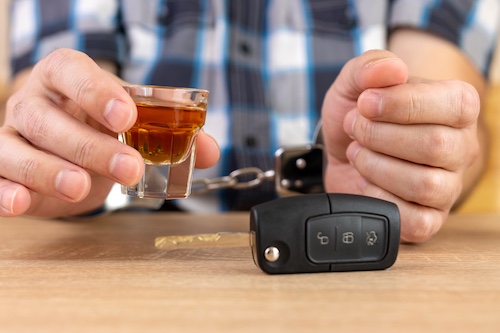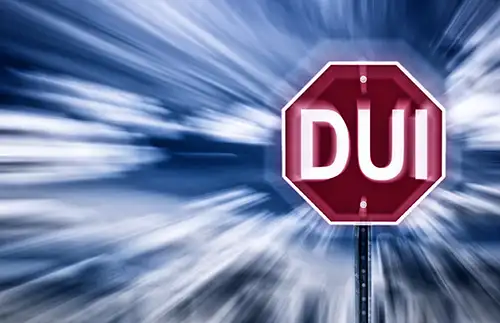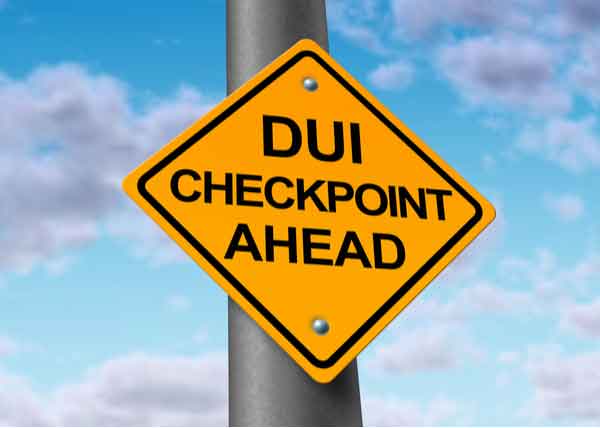Indiana DUI Penalties: What Every Driver Needs to Know
We are Rathburn Law Office P.C., P.C., based in Indianapolis, and we handle Indiana DUI penalties cases every day. We focus exclusively on defending people charged with Operating While Intoxicated (DUI or OWI) throughout Indiana. We have more than 25 years of experience in DUI defense and are nationally recognized experts in breath testing, field sobriety tests, and blood analysis. We train judges and attorneys in DUI-related testing protocols and standards based on our professional knowledge of how machines operate and interpret samples. We review every detail of your case from the traffic stop to chemical test results and work to build your defense.
Driving under the influence in Indiana carries serious consequences, even for a first offense. Indiana DUI penalties can include jail time, heavy fines, license suspension, and a permanent criminal record. Whether it is a misdemeanor OWI or a felony DUI involving bodily injury, the law sets strict limits and harsh punishments. Understanding how these laws work is essential for anyone facing drunk driving charges.
In this blog, you will learn about Indiana DUI penalties for first-time and repeat offenses, how charges are classified, what legal consequences to expect, and why working with an experienced Indianapolis DUI defense lawyer can make a critical difference in the outcome of your case.
What Constitutes a DUI/OWI in Indiana?
Indiana law defines DUI offenses using the term Operating While Intoxicated (OWI). A DUI offense can lead to serious legal consequences, including jail time, fines, and driver’s license suspension. Understanding how Indiana identifies drunk driving is essential for anyone facing OWI charges.
Legal Definition of DUI/OWI in Indiana
A person commits an OWI in Indiana by operating a motor vehicle with a blood alcohol concentration (BAC) of 0.08% or more, according to Indiana Code § 9-30-5-1. For commercial drivers, the legal limit is 0.04%. Drivers under the age of 21 can face penalties for a BAC of just 0.02% due to Indiana’s zero tolerance policy.
Controlled Substances and Prescription Medications
OWI charges are not limited to alcohol impairment. A driver may also face DUI penalties if impaired by controlled substances, including marijuana or narcotics. Even legally prescribed medications can lead to a drunk driving charge if they affect a person’s ability to operate a vehicle safely. A chemical test confirming the presence of Schedule I or II drugs can be enough to support an OWI conviction.
Initiation of a DUI Arrest
Police typically begin a DUI arrest following a traffic stop supported by probable cause. Common signs include erratic driving, speeding, or other traffic violations. Officers may conduct field sobriety tests and request a chemical test, such as a breathalyzer or blood test. Refusing a chemical test results in an automatic driver’s license suspension under Indiana’s implied consent laws.
BAC Levels and Classification of Offenses
A BAC between 0.08% and 0.14% is usually charged as a Class C misdemeanor. A BAC of 0.15% or higher, or evidence of dangerous driving, may raise the charge to a Class A misdemeanor. These classifications directly impact the severity of the potential penalties, including jail time and fines.
Factors That Influence a DUI Offense
Several conditions affect the classification of a DUI in Indiana. These include the BAC level, presence of drugs, previous OWI convictions, and whether the incident involved bodily injury or a minor passenger. Any of these can raise the offense to a felony DUI, resulting in greater punishment.
Penalties for a First Offense DUI in Indiana
A first offense DUI in Indiana carries serious legal consequences, even if no one is injured and no prior conviction exists.
Classification and Basic Penalties
A first DUI offense is typically charged as a Class C misdemeanor under Indiana law. The penalties may include up to 60 days in jail and a fine of up to $500. If the driver’s blood alcohol content (BAC) is 0.15% or higher, the charge may increase to a Class A misdemeanor. This carries a maximum punishment of up to one year in jail and fines up to $5,000.
License Suspension and Driving Privileges
A first DUI conviction often results in a driver’s license suspension. The Indiana Bureau of Motor Vehicles may suspend driving privileges for 180 days or longer. In some cases, a judge may approve specialized driving privileges, allowing limited driving for work, medical appointments, or child care.
Mandatory Programs and Assessments
The court may order the driver to complete a drug and alcohol assessment. Based on the results, the driver could be required to attend a treatment program. Judges often mandate participation in victim impact panels and may impose community service as part of sentencing.
Aggravating Factors
If a minor was in the vehicle during the offense or if the driver caused property damage or bodily injury, the penalties may increase. Even for a first offense DUI, these aggravating factors can lead to greater punishment and potential felony charges.
Consequences Beyond the Courtroom
A DUI conviction affects more than criminal records. Auto insurance premiums typically increase. Employment opportunities may be limited. A first DUI offense can also remain on a person’s driving record for several years, affecting future legal outcomes if another drunk driving arrest occurs.
Penalties for Repeat and Felony DUI Offenses
A second or subsequent DUI offense in Indiana leads to harsher legal penalties, including the possibility of felony charges and extended license suspension.
Second DUI Offense
A second DUI offense within seven years of a previous OWI conviction results in increased punishment. The offense may be classified as a Level 6 felony under Indiana Code § 9-30-5-3. Penalties include a jail sentence ranging from six months to two and a half years, with a minimum sentence of five days or 240 hours of community service. Fines may reach up to $10,000.
The Indiana Bureau of Motor Vehicles may suspend the driver’s license for at least one year. The court may also require installation of an ignition interlock device. Repeat offenders often face mandatory substance abuse treatment and further evaluation.
Third DUI Offense
A third DUI conviction increases the potential penalties significantly. Courts may impose up to two and a half years of imprisonment and fines up to $10,000. A third offense within a ten-year period may also lead to habitual offender status. This can result in an additional sentence of up to six years under Indiana Code § 35-50-2-8.
License suspension is often longer, and the court may deny specialized driving privileges. The judge may require a full substance use evaluation and follow-up treatment.
Felony DUI with Aggravating Factors
A DUI offense becomes a felony under certain conditions. If a person causes serious bodily injury, the charge may rise to a Level 5 felony, which carries a sentence of one to six years in prison. If the DUI results in death, the offense may become a Level 4 felony with a penalty of two to twelve years.
Driving with a suspended license, a minor in the vehicle, or multiple prior convictions are all factors that increase penalties. These cases often involve mandatory prison time and permanent impact on the person’s criminal record.
Long-Term Consequences of Felony DUI
A felony DUI conviction creates lasting problems. It can limit job opportunities, affect firearm rights, and lead to long-term driver’s license suspension. Insurance companies may cancel policies or raise rates significantly.
The Role of a DUI Defense Attorney in Indiana
A DUI defense attorney plays a critical role in protecting the rights of individuals facing drunk driving charges under Indiana DUI laws.
Legal Guidance and Case Evaluation
An experienced attorney reviews every part of the DUI case. This includes the traffic stop, field sobriety tests, chemical test results, and police reports. The attorney checks whether law enforcement had probable cause for the DUI arrest. If any part of the process was improper, the attorney may seek to have evidence excluded or the case dismissed.
Building the Best Defense Strategy
A DUI defense lawyer identifies weaknesses in the prosecution’s case. This may involve questioning the accuracy of breath tests or challenging the qualifications of the arresting officer. In some cases, the attorney may present medical or legal reasons that explain the BAC result or the driver’s behavior at the time of arrest.
Negotiating Penalties and Sentencing
If a conviction is likely, the attorney may work to reduce DUI penalties. This could include negotiating for a lesser charge, such as a misdemeanor OWI, instead of a felony DUI. The attorney may also argue for community service, probation, or alcohol education programs instead of jail time.
Representing the Driver in Court
A DUI defense attorney represents the driver during all court appearances. This includes pretrial hearings, plea negotiations, and the trial itself. The attorney presents arguments, cross-examines witnesses, and submits evidence. Skilled legal representation can affect the sentencing judge’s decision and reduce the impact of a DUI conviction.
Help with License Suspension and Driving Privileges
An attorney also assists with license-related issues through the Indiana Bureau of Motor Vehicles. This includes challenging a driver’s license suspension or applying for specialized driving privileges. These privileges allow limited driving for work, school, or medical needs.
Protect Your Future with Help from Rathburn Law Office P.C., P.C.!
If you are facing DUI charges in Indiana, the penalties can affect your freedom, your license, and your future. Our team at Rathburn Law Office P.C., P.C. focuses on defending individuals charged with drunk driving and understands how to challenge the evidence and protect your rights.
Contact us at 800-800-8000 for a free claim review ASAP!








